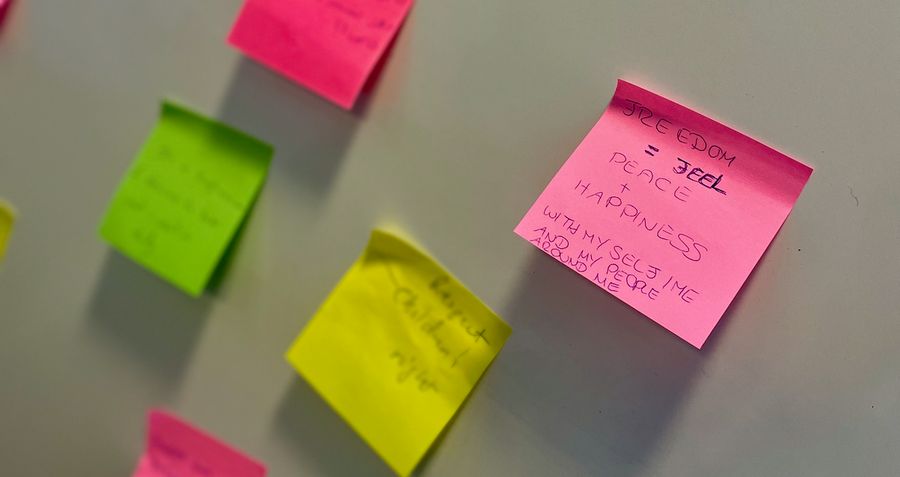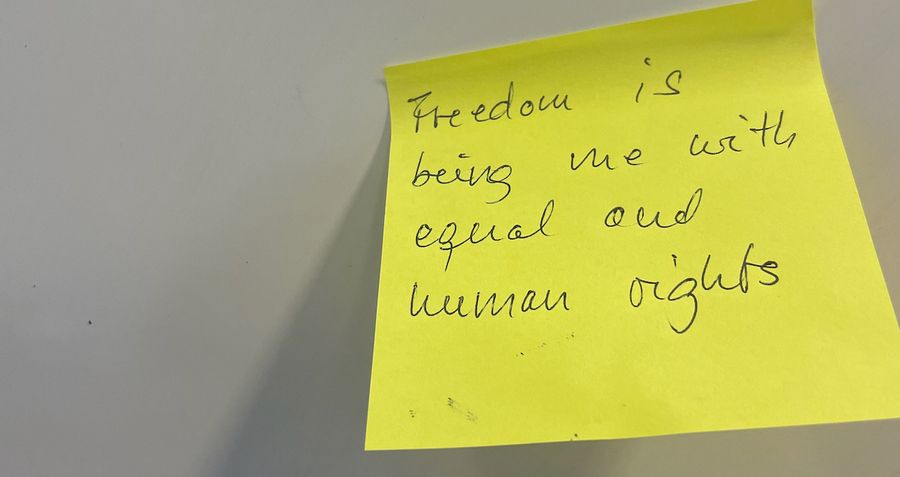Freedom-yes!
Freedom is a concept which most of us are familiar with. But what is freedom really? Is freedom important for us in our everyday life?
Quick facts




Activity goals
- To reflect on what freedom means.
- To be aware that freedom means having the opportunity to make choices.
- To understand that freedom is the opposite of being impeded, controlled, forced or ruled over.
- To learn that human rights protect the individual’s right to freedom.

Instructions
- The participants sit in a semicircle. The task is to think about the question: What does freedom mean to me? They write keywords on the sticky notes without conferring with others (2-3 minutes).
- When everyone has finished they go up one after the other to the flip-over sheet and stick their notes there. They then say what freedom means to them and return to their seat.
- Proposed follow-up task: When everyone has presented, they form pairs with their neighbours and attempt to agree on a definition of freedom (5-7 minutes). The pairs then present their definitions to the others from their seats.
Reflection
- Was it difficult to reach agreement? Why? Why not?
- Is freedom a value they have a conscious attitude to? Why? Why not?
- Would we understand more clearly what freedom is if we have experienced not having it?
- What is the opposite of freedom?
- Is freedom a human need?
- Can you be happy if you are not free?
- Is it right to demand respect for your own freedom if you do not respect the freedom of others?
Debriefing
Most think of freedom as something positive and as a fundamentally important value. It is difficult to find one definition that everyone will agree on. The Norwegian philosopher Lars Fredrik Svendsen believes that a minimum definition can be: “Freedom is the opportunity people have to choose one direction in life rather than another”. Freedom is thus closely connected to having choices, where we can choose what we want to think, say and do, whom we want to be together with and the direction we want to take in our lives. In a free society freedom must be mutual. If I want others to respect my freedom, I must respect the freedom of others. This means that freedom is based on responsibility. Freedom cannot be so broad that it restricts the freedom of others. The individual’s right to freedom is protected in the Declaration of Human Rights.
(English translation: John Anthony)



